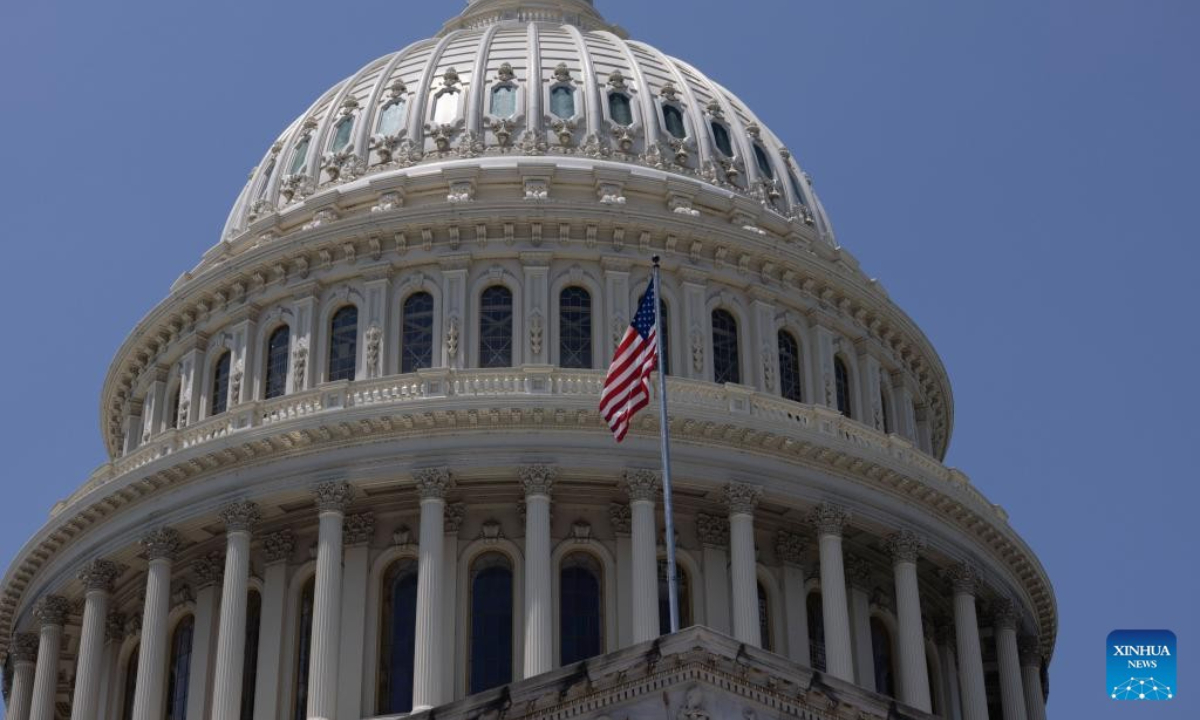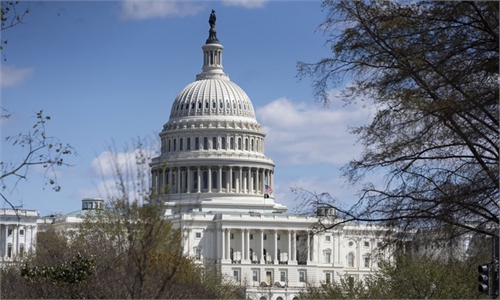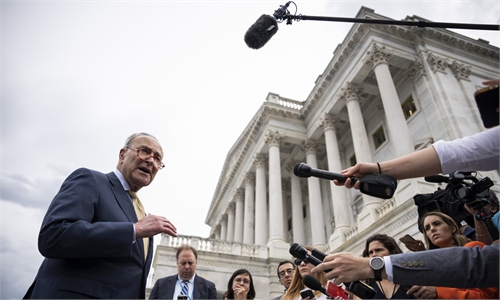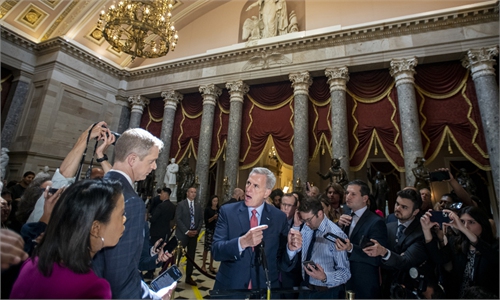
This photo taken on May 31, 2023 shows the US Capitol building in Washington, DC. Photo:Xinhua
US President Joe Biden touted that the debt-ceiling deal will help the US avoid economic collapse, but experts warn that the US debt-ceiling crisis is a systemic problem that will erupt periodically, and that rising US debt is severely undercutting the credit of US assets and status of the US dollar.
Biden on Friday touted the passage of the debt-ceiling bill, adding that he would sign it Saturday and the US "averted an economic crisis and economic collapse," the Wall Street Journal reported on Friday.
Although the US debt ceiling problem has been temporarily addressed from occurring again, the issue is a chronic problem built into the US economic system, which will occur periodically and cannot be fundamentally resolved, according to Yu Xiang, a non-resident research fellow at Center for International Security and Strategy, Tsinghua University.
The deal reached by Biden and House Speaker Kevin McCarthy which passed the Senate on Thursday would suspend the US debt limit until January 2025, but the deal only featured modest cuts to a relatively small corner of the federal budget, suggesting debt will keep growing at a fast rate, the New York Times reported on Friday.
The US debt, which has reached $31.4 trillion, is poised to top $50 trillion by the end of the decade even after accounting for newly passed spending cuts, the report said.
Since 1960, Congress has acted 78 separate times to permanently raise, temporarily extend, or revise the definition of the debt limit, according to data from US Department of the Treasury.
US debt continues to rise, and the periodic debt ceiling crisis is undercutting market confidence in the sustainability of US government debt and eroding the credit base of the US dollar, Yu told the Global Times on Saturday.
The report on international capital flows released by the US Treasury Department recently showed that many countries continued to reduce their holdings of US debt, and that an overall risk aversion sentiment was obvious.
It still remains difficult for the US to bring down the inflation in the short term. The US economy already slipped into a technical recession in 2022. It remains to be seen whether there will be a further economic slowdown in 2023, experts warned.
The Conference Board reported Tuesday that its consumer confidence index fell to 102.3 in May from 103.7 in April. It's the fourth time in five months that overall US consumer confidence has declined, according to US media manufacturing.net.
The weaker-than-expected economic indicators have deepened the market's concerns about the prospects of a US recession, according to experts.
The Fed is expected to take a more cautious approach in coming months to avoid a sharp recession in the US economy, and that an acute recession or a hard landing would have a severe impact on the global economy, Yu said.



